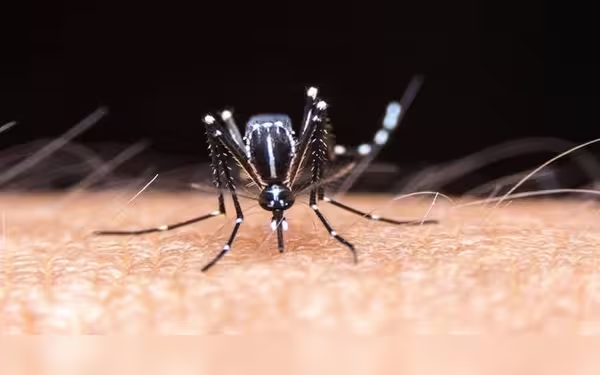Thursday, November 7, 2024 01:06 PM
Rawalpindi Sees Surge in Dengue Cases with 61 New Infections
- Rawalpindi reports 61 dengue cases in 24 hours.
- Total dengue cases in the city reach 1,172.
- Health Authority ramps up awareness and preventive measures.
 Image Credits: nation_pk
Image Credits: nation_pkRawalpindi reports a surge in dengue cases with 61 new infections, totaling 1,172. Health authorities enhance awareness and preventive measures.
In recent weeks, Pakistan has witnessed a concerning rise in dengue fever cases, a mosquito-borne illness that poses significant health risks, particularly during the monsoon season. The city of Rawalpindi has been particularly hard hit, with the District Health Authority reporting a staggering 61 confirmed cases in just 24 hours. This alarming spike has brought the total number of dengue cases in the city to 1,172, with five unfortunate fatalities recorded so far.
The situation in Rawalpindi is reflective of a broader trend across the country, where dengue cases have surged. Earlier this year, the city experienced its highest daily count of 110 positive cases, contributing to a total of 960 patients reported since January 2024. The latest figures indicate that the outbreak is not only persistent but also increasingly affecting the youth, who represent a significant portion of the affected population.
According to the District Health Authority, the recent statistics reveal that 185 patients are currently receiving treatment in various allied hospitals. Among these, 17 patients were reported from the Rawalpindi Cantonment Board areas within the last 24 hours. This data underscores the urgent need for public awareness and preventive measures to combat the spread of dengue.
In response to the rising cases, the District Health Authority has ramped up its efforts to enhance surveillance and public awareness. Dr. Asif Arbab Niazi, the CEO of the Health Authority, has taken a proactive approach by personally engaging in awareness campaigns. He visited several bus stands, including Pirwadhai, where he distributed mosquito repellents to passengers and led a car rally featuring vehicles adorned with dengue awareness posters. These initiatives aim to educate the public about preventive measures and the importance of adhering to dengue SOPs.
Dr. Niazi emphasized the need for citizens to remain vigilant, stating that while the number of positive cases may be lower compared to previous years, the threat of dengue remains significant. He urged individuals to report to hospitals if they experience symptoms of fever, as early detection and treatment are crucial in managing the disease.
As the dengue outbreak continues to unfold, it is imperative for the community to come together and take preventive actions. Simple measures such as eliminating standing water, using mosquito repellents, and maintaining cleanliness can significantly reduce the risk of dengue transmission. By staying informed and proactive, citizens can play a vital role in curbing the spread of this disease and protecting their health and the health of their loved ones.













